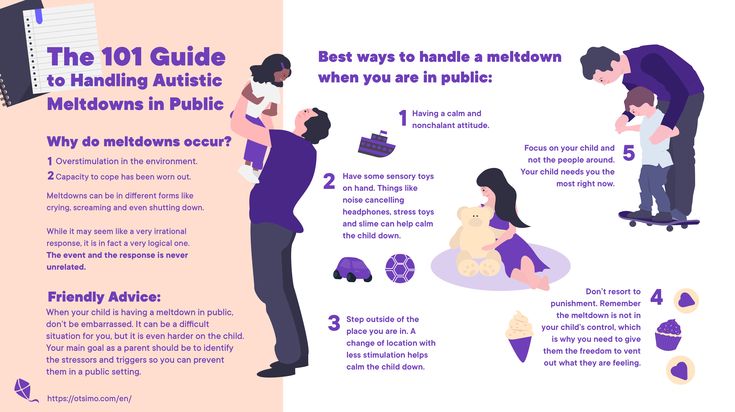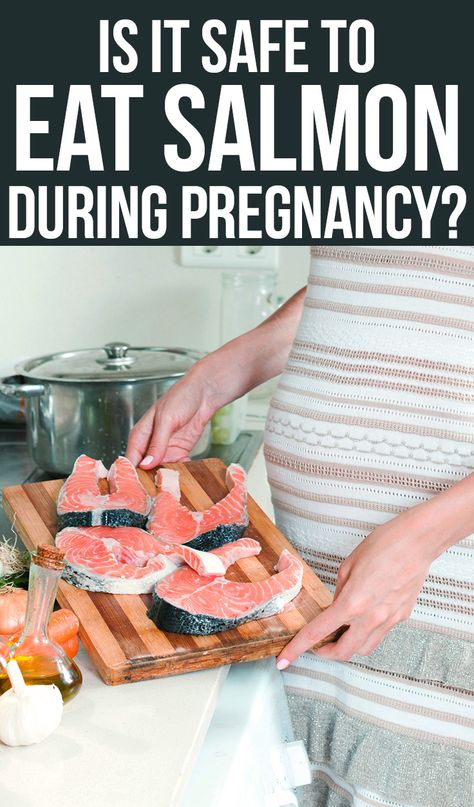How to deal with ungrateful child
How to Deal with an Ungrateful Child
Are you dealing with selfish kids? Learn how to discipline an ungrateful child without power struggles, and nurture respect instead.
My husband added an extra treat for our toddler: a peanut butter sandwich with his oatmeal. The little guy shoved aside the oatmeal for the sandwich and gobbled it up in record speed.
Once his hands were empty, though, he cried for more. “It’s all gone,” we explained.
But nothing seemed to register. He wasn’t thrilled at having eaten a favorite snack—instead, he showed little thanks once it was gone.
This wasn’t the first time he seemed ungrateful. I had offered to show him a favorite movie, but it ended with him crying for more, rather than showing gratefulness for having seen it.
We’ve also given him a smoothie, only to face more crying when it ran out. And we took him to a playground for several hours just to end with a temper tantrum when we had to leave.
“Do you think he’s being an ungrateful child?” I asked my husband later that day. “I don’t feel like doing anything fun or giving him special treats anymore if he throws a fit when it ends.”
Table of Contents
How to handle an ungrateful child
It’s normal to feel down when your child doesn’t appreciate your effort and good intentions. After all, you’re expecting joy, not a fit of tears.
But she’s likely not being ungrateful so much as feeling disappointment, confusion, or frustration. She’s still figuring out her likes and dislikes and voicing her opinions (quite vocally, even).
But sometimes, it can feel like she’s constantly complaining about something.
Perhaps she complains about doing chores (never mind that you do most of them) or finds something wrong with the clothes she wears. She isn’t thankful for birthday gifts she receives, and can even be downright rude with her comments (“I don’t want this!”).
This kind of behavior is extra frustrating because you’ve been consistent with trying to do all the right things to avoid spoiling her. You don’t give her everything she asks for, and you certainly don’t let her get away with being disrespectful.
You don’t give her everything she asks for, and you certainly don’t let her get away with being disrespectful.
In fact, you teach her manners, set clear, consistent and reasonable expectations, and remind her she has it good compared to other people. And yet, she continues to behave like an ungrateful child, unaware of all the things she has to be thankful for.
It’s definitely frustrating spending so much effort trying to be a good mom when she still isn’t getting it.
I didn’t want my kids to grow up “spoiled,” to forget all that they have, or to have a lack of gratitude, even if they may not realize how they’re acting. So, I implemented several tips, all geared to turning this behavior around. Other readers have already found them useful:
“Enjoyed reading your insight! It seems this is a topic that comes up frequently with several of my mom friends. Looking forward to implementing some of these techniques.” -Amy
I hope you can apply these tips moving forward, should you find yourself with an ungrateful child:
1.
 Hold your ground
Hold your groundFew things are more exhausting than dealing with meltdowns and tantrums. Your body tenses and braces for a battle, all while you have other tasks to tend to. No wonder it’s tempting to give in to your child and call it a day.
There are two ways we give in.
- Indulging our kids what they were whining about, from making a PB&J instead of salad to buying the new toy they’re throwing a fit about at the store.
- Tuning out. We don’t hold them accountable to their poor behavior, choosing instead to let it slide time and time again.
Now, there are definitely times when we need to throw up our hands to save our sanity. We give the candy bar or let them stay up 30 minutes later because we just don’t have the energy to deal with it any longer.
But those should be rare situations, not the norm.
Instead, focus on holding your ground. Otherwise, your child learns that behaving this way is not only tolerated, but a pretty effective way of getting what she wants.
Giving in reinforces the very behaviors that contribute to the ingratitude you’re trying to remove. If anything, remind yourself that throwing a tantrum doesn’t allow her to learn better ways of communicating what she wants or feels.
Learn the biggest reason parents should stand their ground.
2. Acknowledge your child’s motives
It’s easy to overreact to your child’s behavior when it triggers frustration or embarrassment. Maybe she insulted grandma by tossing a gift to the side, or refused to eat the dinner you prepared.
But beneath the behavior is a deeper, valid emotion that let her to behave that way. And it’s this behavior you need to acknowledge first.
By showing empathy, you dissolve any defenses she may have. She won’t feel attacked, and will be more willing to listen and change.
Tossing grandma’s gift to the side isn’t the right behavior, but you also understand that a pack of shirts may not be exciting to her right now. You might even recall a time when you tore open a gift, only to be disappointed with what you found inside.
You might even recall a time when you tore open a gift, only to be disappointed with what you found inside.
Except you’ve had years of practice to respond politely in these situations. Your child, however, is still working on it (that’s what childhood is for!).
Free printable: Struggling with what exactly you should do when she throws a tantrum? Grab the Quick Guide to Handling Tantrums to help you figure out what to do when tantrums strike. You’ll also get my newsletters, which parents say they LOVE:
“I just wanted to thank you for the wonderful work you are doing. Your newsletters are always like the silver lining to my dark days. More often than not, it’s exactly about something I have been struggling with my daughter lately. I simply love your blog. It has helped more times than I can count. Keep up the excellent work!!” -Vani Vasudeva
3. Teach your child empathy
Kids aren’t born with the ability to imagine what it feels like to be in someone else’s shoes. Far from it: they’re quite egocentric, to the point where they believe that everything in sight is theirs to own.
Far from it: they’re quite egocentric, to the point where they believe that everything in sight is theirs to own.
Through childhood, though, they learn that other people have feelings—the very same feelings that they also have. They practice showing empathy, imagining what it’s like if it were them on the receiving end.
The more you can teach empathy, the better able your child will be to change her behavior toward others.
Sure, she might change her behavior if she knows she’ll “get in trouble,” or because she’ll lose a privilege. But we’re raising kids who want to behave, even when no one is looking.
Because if there’s one phrase you can’t say enough of, it’s this: “How would it feel if…”
Get in the habit of asking her constantly how she would feel if the same thing happened to her. Not so much in an “I told you so” tone of voice, but to get her to think deeper about how her actions affect others.
Get more tips on how to teach empathy.
4. Correct and give alternatives
Once you’ve acknowledged your child’s motives, now you can correct the behavior. A phrase I often say in my home is, “We don’t talk to one another that way.” It’s a simple phrase that instills a “code” that your family lives by.
Then, make sure you don’t talk to others in that tone on a regular basis. Take a look at how you talk to him, your other family members, or even strangers who irked you. We teach by example more so than with words we say.
Finally, give alternatives that are more appropriate while still honoring his motives. You can’t force him to love grandma’s gift, but he can certainly give grandma a hug and a “thank you” for her generosity.
Or, let’s say he complains about the clothes he’s wearing. You can tell him, “There’s a better way of saying that. Maybe you can say, ‘I wanted to wear pants, not shorts’.”
Don’t just expect him to “know” what to do or how to respond. Give examples to use moving forward, like what to do or how to change his tone of voice.
Learn how to stop grandparents spoiling grandchildren.
5. Withdraw privileges temporarily
Does your child scoff at the toys she has and behave a sense of entitlement? One tactic to encourage a sense of gratitude is to temporarily take them away from her.
Let’s say she complains about her stuffed animals—that she doesn’t have any new ones or that the ones she has aren’t fun anymore.
Let her know that it doesn’t look like she’s ready for the responsibility of taking care of the stuffed animals. And that if she continues to not care for them, that you’ll put them away for the rest of the day (and that she’ll get them back the next day).
You can also do this regularly—and not only as a response to her behavior—by rotating toys. Store a few of the toys she doesn’t play with all the time. Then, every few weeks, bring them out, while storing the toys she had been playing with.
After a while, seeing the same toys can make it easy for her to forget all that she has. But by rotating toys, she’s more likely to appreciate them, especially when they seem “new.”
But by rotating toys, she’s more likely to appreciate them, especially when they seem “new.”
6. Remove the labels you’ve placed on your child
Do you find yourself focusing too much on your child’s ungratefulness? It’s understandable, especially when these types of behavior take so much energy or ruin the rest of your day.
But those very labels prevent him from changing, no matter how much you want him to. Whether you outright say thing like, “You’re so stubborn!” or even think to yourself, He’s such an ungrateful child, these labels make it that much harder to change.
After all, our life reflects our outlook. And the more we focus our perspective on the negative labels, the more we’re likely to see them. It’s almost like we have our radar tapped into catching ingratitude, oblivious to the many ways our kids are behaving well.
Instead, start with a clean slate and appreciate him for who he is, regardless of his behavior. Better yet, praise him for good behavior and when he does show appreciation, as this is more effective than correcting negative ones.
By removing negative labels, you allow him to be the grateful person that he can be.
Learn 6 reasons to stop labeling kids.
Conclusion
Dealing with ungrateful attitude is exhausting, no doubt. You’re embarrassed with her behavior and afraid you’re raising a spoiled child. Worse, you have no idea how she ended up that way, especially since you’ve done just about everything to avoid this situation.
Sometimes, though, raising a grateful child isn’t only about not giving them a lot of toys or telling them to say “please” and “thank you.”
Instead, focus on teaching empathy, so that she can better see how her behaviors affect others. Acknowledge her motives—which often stem from valid, common reasons—so that she feels heard and understood.
Then, offer different ways to communicate or behave so she can say what she feels in a more appropriate way. Withdraw privileges so she understands the responsibilities and expectations of having them.
Hold your ground, since giving in—especially to tantrums and meltdowns—doesn’t give her the chance to learn from these moments. And remove negative labels, whether said out loud or in your mind, that you have of her behavior.
All kids will show ungrateful behavior from time to time, whether they mean to or not. But by following these principles, you can steer your child toward the kind of behavior you want to see.
Or at the very least, get her to be grateful for a peanut butter and jelly sandwich.
Get more tips:
- 5 Unusual Ways to Deal with a Defiant 3 Year Old
- Top 7 Tips to Keep Your Sanity as a Mom
- 8 Warning Signs You Need to Be a More Patient Mom
- How to Teach Your Kids to Make Good Choices
- Children’s Books about Making the World a Better Place
Don’t forget: Join my newsletter and get the Quick Guide to Handling Tantrums:
4 Surprising Reasons Your Children are Ungrateful
Most parents I know work hard to give their kids “the world. ” This often results in an inundation with so. much. stuff. And I’m not only referring to physical toys and gifts but rather, all the different places they can go to be entertained and the fun things they get to experience. Financial status (at least here in the U.S.) doesn’t necessarily differentiate kids from having too much either as there are so many free resources like local city and library events and giveaways. And yet, children can seem so ungrateful.
” This often results in an inundation with so. much. stuff. And I’m not only referring to physical toys and gifts but rather, all the different places they can go to be entertained and the fun things they get to experience. Financial status (at least here in the U.S.) doesn’t necessarily differentiate kids from having too much either as there are so many free resources like local city and library events and giveaways. And yet, children can seem so ungrateful.
This post contains affiliate links, see disclosure policy for details.
This can leave us feeling like we need to lecture them on how good they have it…with a Powerpoint and all! Telling stories about how we only had two Barbie Dolls and some craft kits instead of having a room full of toys. And only getting to go to the zoo twice in our whole childhood instead of having the opportunity to go every weekend. Or how we had to walk to school uphill both ways. Ha!
But is that how we teach gratitude?
Do we tell our children that they are ungrateful or threaten to take away all of their toys and park passes? Does that help them see that they, in fact, have a pretty darn good life?
No, this actually doesn’t keep our kids from being ungrateful as lectures rarely do.
So what’s the big deal about gratitude anyways? Does it really matter if our child thanks us for all that we do and give to them?
Table of Contents
Gratitude MattersIt’s important to look at all the reasons why our children are ungrateful so we can instill gratitude because it’s important to their well-being.
The mere act of thinking about what we are grateful for is beneficial for our psychological, emotional and even physical health! We don’t have to even be thankful, but instead, we only need to start thinking about it.
Seriously, right now, think about how grateful you are for each of your precious blessings. Simply reading that sentence alone can be beneficial.
Concrete and Connective GratitudeYes, raising grateful kids leads to good manners which are referred to as a concrete type of gratitude, but there are so many more health benefits when people reach connective gratitude!
According to PositivePsychology. com, ” {Connective gratitude} is a fully understood and appreciated receipt of whatever has been given. The appreciation is returned in a meaningful and heartfelt way, benefiting both receiver and giver. For gratitude to be an effective way to increase happiness, it must be felt, and connective gratitude is the key.”
com, ” {Connective gratitude} is a fully understood and appreciated receipt of whatever has been given. The appreciation is returned in a meaningful and heartfelt way, benefiting both receiver and giver. For gratitude to be an effective way to increase happiness, it must be felt, and connective gratitude is the key.”
There have been countless studies on the practice of being thankful. All have shown an increase in happiness, determination, focus, enthusiasm, and energy!
It’s important to note that teaching and practicing gratitude isn’t about comparing our situations to others who have it “worse.” As that has shown not to be as helpful. Instead, gratitude is about appreciating your life and all the things in it.
Our brains are not wired to focus on both negative and positive stimuli simultaneously.
It also falls back on the confirmation basis of looking for something the mind already knows to be true.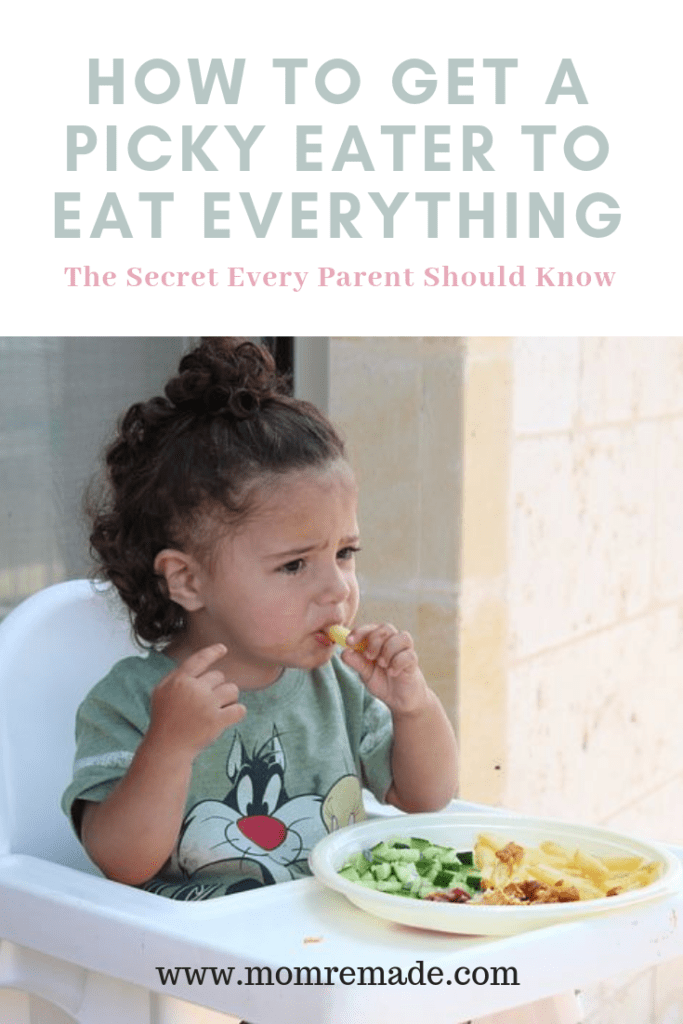 Therefore, the more you acknowledge what you are thankful for, the more your brain looks for things to be thankful for. And remember, this feeling of gratitude leads to a whole slew of positive things in due time!
Therefore, the more you acknowledge what you are thankful for, the more your brain looks for things to be thankful for. And remember, this feeling of gratitude leads to a whole slew of positive things in due time!
My focus in this post is about our children but being grateful has the same impact if not more on us!
- Expressing gratitude can increase oxytocin in the brain which promotes empathy, relaxation, generosity, calmness, trust, attachment, intimacy, and a sense of safety. It also reduces the stress hormone which in turn, reduces anxiety.
- Thinking about what we are thankful for can redirect our attention from toxic emotions such as resentment, regret, and bitterness.
- Grateful kids often grow up to be emotionally, physically and socially successful.
- Kids who can look at their lives and be thankful for what they have often have decreased levels of depression, envy, and materialism.

- Thankful kids can recognize the goodness in their life which helps them feel more connected and loved.
- Appreciation leads to generosity. Studies show that the more grateful a person, the more likely he or she is to give to others.
- Acknowledging gratitude fosters strong relationships.
- It can train the brain to be more sensitive to other people over time which then leads to… an improved life and overall mental health!
Figuring out why children are ungrateful is important to understand so we can make a change.
Developmentally, kids can typically understand gratitude starting between the ages of four and six. Besides development, there are other reasons why kids may keep asking for more, not say thank you, can’t see the good or have an ungrateful attitude when something nice is given or done for them.
One of the most common reasons can accidentally be brought on by us, their parents. Gasp! And there can be a few other things as play, as well.
Gasp! And there can be a few other things as play, as well.
1.
EntitlementI found this definition of entitlement, which is quite fitting for looking at why children are ungrateful: “An unrealistic, unmerited or inappropriate expectation of favorable living conditions and favorable treatment at the hands of others.”
The culprit can be giving a child everything they want when they want it.
A book I highly recommend on this issue is “The Me, Me, Me Epidemic” by Amy McCready. She says, “The entitlement epidemic usually begins with over-parenting—over-indulging, over-protecting, over-pampering, over-praising, and jumping through hoops to meets kids’ endless demands,”
Read More: Why Praise Doesn’t Work to Motivate Kids and What We Can Do Instead. As a bonus, by signing up for my newsletter, you will receive a Free Printable that helps you stop over-praising your children by giving you ways to encourage them through their strengths.
We want our kids to be happy so we unintentionally start to mow down every object in their way or hover over them to ensure they never fail.
All people, young and old, learn through making mistakes!
If we don’t ever allow our kids to experience failure, they will start to form unrealistic expectations about the world around them.
I also want to note that kids can feel entitled even without over-parenting. When looking at the psychology of entitlement, it can actually be a coping mechanism.
A child who has a lot less than his or her peers may start to feel entitled to have all of those things. Lastly, it can also be filling a compelling need to feel admired or have an excessive sense of self-importance. This can result in feeling like they are better than others. Narcissism can be the culprit but thankfully, there are ways to overcome that too!
Signs of Entitlement:It’s important to acknowledge if our child has or is starting to have an entitlement problem.
The first step is awareness.
This could be something that can cause you to feel guilt or shame, but don’t! It already happened so let’s look at what we can do about it! Instead, look forward and think about how much you are going to help your child by getting him or her off of the entitlement train now!
Signs that a child is becoming or is entitled:
- Will only do something if he will be receiving some kind of reward or bribe.
- Never feels like she has enough, but instead, is constantly wanting more.
- Doesn’t help anyone else and only thinks of him or herself.
- Acts as if rules are only for others.
- Has an expectation that someone will come to his rescue anytime he is in trouble or needing help.
- Can’t go shopping without whining to the point where you give in to buy whatever it is that she wants.
- Doesn’t take the blame even if a problem is his fault.
- Is unable to handle any kind of disappointment.
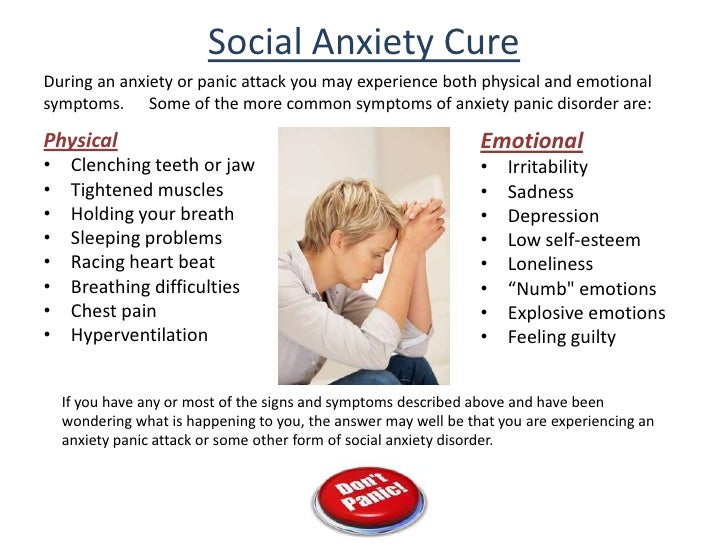
2.
Living in a BubbleAnother reason children can be ungrateful is that they don’t have any experience to compare life to.
When children are little, it’s great to encourage them to donate toys or backpacks to others in need. However, unless they can get a firsthand experience of what it’s like to live in that way, the lesson can be lost.
Yes, the world can be a scary and sad place, but it’s when we become gloriously broken and see how we can spread joy and goodness in the world, that we truly experience what life is meant to be.
The Benefits of Volunteering For Kids:- Volunteering builds a sense of empathy and compassion. Kids tend to connect with and build empathy for those they can relate to. Thinking about others can change one’s perspective on his or her own life.
- It can shape their lives to look at the greater good.
- Helping others can give your child a sense of purpose and personal satisfaction leading to more happiness.

- It can promote collaboration and teamwork. This, in turn, can help a child become more grateful for the people they have supporting them and who or what they are serving.
- It can help kids acknowledge how grateful they are for their parents and family.
- Lastly, volunteering opens kids’ eyes to a world other than their own.
To fully receive all that volunteering as to offer to open a child’s eyes to a different perspective, reflect afterward. Start a conversation about the impact he or she made and vice versa. Get your child thinking by asking open-ended questions about the experience.
3.
Exchange RelationshipUnderstanding this concept has totally opened my eyes to look differently at what I thought was ungratefulness.
There are many studies on kids receiving rewards or gifts and a sense of gratitude.
One study done at Yale found that kids ages 4-8 years old were less likely to feel a deep sense of gratitude if they thought they earned a reward or gift because it was expected. The kids also had no desire to give to others. Researchers describe what looks like ungratefulness as actually an “exchange relationship.“
The kids also had no desire to give to others. Researchers describe what looks like ungratefulness as actually an “exchange relationship.“
Whereas, when the children were randomly given the reward out of pure generosity by the giver, there was a greater emotional impact. This deeper sense of gratitude caused the kids to be intrinsically motivated to give to others.
Think about gifts that are given to your kids that are expected such as Christmas and birthdays. And during the summer, you may go to special fun places like the Children’s Museum, Science Center or waterpark. You take time, effort and money into giving something really special to your child. However, they may see it as an exchange relationship because getting gifts and going places during these times is expected. Therefore, it’s natural for your children to not be as emotionally impacted like they would be if you surprised them with a trip to their favorite froyo place.
A perfect example of this is how my son reacted after receiving some gifts from his grandma.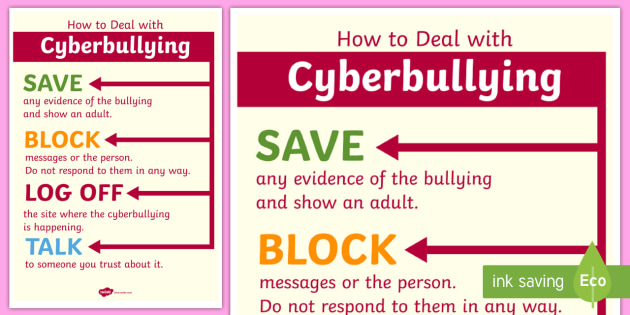 For his birthday, she got him a Lego set he loved. His reaction, though, was very, “meh.” He was appreciative but he didn’t express much gratitude. Then recently, she surprised him with a few pairs of new pajamas. He acted as if he just won the lottery he was so excited. Over PAJAMAS!
For his birthday, she got him a Lego set he loved. His reaction, though, was very, “meh.” He was appreciative but he didn’t express much gratitude. Then recently, she surprised him with a few pairs of new pajamas. He acted as if he just won the lottery he was so excited. Over PAJAMAS!
After learning about this concept of exchange relationship, it helped me see he wasn’t ungrateful for the birthday present, he just wasn’t as emotionally impacted because it was expected.
4.
Need for AutonomyThis one really surprised me! Your children can seem like they are ungrateful by not thanking you for something because they have a need for autonomy. The study I found was done on teenagers, but I see this as being a reason for my adolescent son as well.
Teenhood is a time when adulthood is knocking on the door! This population is mentally preparing for the departure from their life from you.
In Pro Bronson’s book, Nurture Shock, he says, “For kids with a strong need for autonomy and independence, it might be demoralizing to recognize how much they are dependent upon grownups.
” “Their sense of independence might be an illusion, but it’s a necessary illusion for the psychological balance and future growth into genuine independence. Their lack of gratitude might be the way they maintain the illusion that they are in control of their own lives.”
This is a good thing to keep in mind when we think our children are ungrateful ________________ (you fill in the blank…I prefer to call them turkeys. Ha!).
Bonus! Not sure what your kids are capable of doing? Sign up for my newsletter and receive a Free Skills By Age Printable!
Reframe Your ResponseNext time you give your child a gift and they throw it to the side wanting more, stop and think why they are having that reaction.
Is it because they are entitled, they don’t have anything to compare it to, that the gift is expected or that they are fighting for autonomy?
Instead of jumping to telling your kids how ungrateful they are, focus on teaching them how to be grateful. Work on reaching that connective state of gratitude which will have a lifelong impact on their lives.
Work on reaching that connective state of gratitude which will have a lifelong impact on their lives.
Do your kids fall into any of these categories when they forget to thank you or show appreciation? Comment below!
Adriane (Raising Kids With Purpose)
Hello!!! I’m Adriane. I’m a mom to three loud boys, am a research-a-holic and very passionate person who writes at Raising Kids With Purpose. Parenting can feel so hard sometimes but with mindset shifts and understanding, it can be very enjoyable. My hope is to inspire parents like you to create lifelong connections with your children and enjoy the journey along the way!
Ungrateful children
Perhaps the most painful thing you can get from children is ingratitude. At any age, this can manifest itself, very young children may, for example, be ungrateful to the food you have prepared, older children do not appreciate what you do for them at all.
But the theme of ingratitude, of course, comes to the fore among the parents of adolescents, it is in childhood 13-15 years old that one really wants a child to somehow show that he understands that something is being done for him, not a little one already. And he thanked at least a formal “thank you” for the things bought for him, expensive courses, tutors, even just for household care (fed, washed, cleaned). The problem is that this doesn't happen. nine0003
And the child sincerely believes, and even expresses aloud, that there is nothing special to thank him for. Because parents themselves are interested in this (courses, tutors are needed by parents no less than by children), because parents are obliged to help him, he is their child. And in general, he did not ask to give birth to himself, and now he does not ask for anything either, but the parents themselves want and give, so why be grateful?
Sometimes there is gratitude out of politeness, formal, it's already easier. And sometimes there is none, that is, there is no notorious “thank you”. nine0003
And sometimes there is none, that is, there is no notorious “thank you”. nine0003
Form and feeling
Gratitude has two components: it is a kind of experience and an external form of expression. You can thank a person without feeling any inner gratitude for him. Thus, the speaker says "thank you for your question" not because he is overwhelmed by the experience of gratitude, but because it is protocol, a form of politeness. Such forms are like a lubricant for social interaction. "Thank you", "please", "come again", "have a nice evening", "good to see you", "you look great" - these are all words that mitigate intraspecific human aggression. All adults with a stable psyche understand that this is just a form of expressing peacefulness towards others and do not require from these other special confirmations of the sincerity of words. So, a person understands that he looks quite ordinary and they tell him about a fresh appearance in order to ensure a general positive mood and say something pleasant. More nervous people, however, worry that they are hypocrites and say that they are glad to see when they are not at all glad to see. But this is a different story. nine0003
More nervous people, however, worry that they are hypocrites and say that they are glad to see when they are not at all glad to see. But this is a different story. nine0003
Returning to gratitude, it must be said that the formal part is important, even without the experience of gratitude. By providing the formal part of gratitude, even without the proper underlay of gratitude, we show people that they are important to us, we care about how they feel. It is very short-sighted to express gratitude only when this feeling overwhelms you, when you literally cannot contain her impulses. It is desirable to express gratitude much more often, at the moment when you realize that a person has done something for you that he might not have done. Without waiting for global events, paying attention to the little things. Many here make the mistake of referring to the commitment to sincerity in relationships: they say, why should I be hypocritical if I don’t feel any gratitude, so I won’t lie to others, saying these fake “thanks”. Especially, by the way, I won’t lie to my relatives, since the majority understands that the lack of formal courtesy with “strangers”: at work or with friends, will quickly lead to bad relations. But with loved ones, you can not pretend, really, when else to be yourself! And the tactics of such sincerity leads to the fact that at home people feel like they are in the camp of the enemy, but not bad on the side. That is, with a husband-wife, it’s just terrible, but with friends, you see, nothing. This is because with friends you try to be pleasant, and with your husband-wife-children you relax, there is nothing to grimace, let them accept you as you are! nine0003
Especially, by the way, I won’t lie to my relatives, since the majority understands that the lack of formal courtesy with “strangers”: at work or with friends, will quickly lead to bad relations. But with loved ones, you can not pretend, really, when else to be yourself! And the tactics of such sincerity leads to the fact that at home people feel like they are in the camp of the enemy, but not bad on the side. That is, with a husband-wife, it’s just terrible, but with friends, you see, nothing. This is because with friends you try to be pleasant, and with your husband-wife-children you relax, there is nothing to grimace, let them accept you as you are! nine0003
The form of expressing gratitude, even without experiencing that very gratitude, is a mega important thing for a relationship. One must learn to express gratitude appropriately and try to do it authentically, that is, by touching one's own inner part, which is capable of experiencing gratitude. But this is already a higher level, and at a simple level, you need to express it strictly as it turns out.

In addition to the form, there is also an inner experience of gratitude. And it can also exist without the second part - without expressing gratitude. Sometimes we fail to express gratitude due to the remoteness of the object of gratitude in time or geographically. Sometimes there is no way to express gratitude, although you want to. Sometimes the object of gratitude has already passed into the other world, and only symbolic forms of gratitude are possible. In general, there is often a feeling of gratitude, but there is no expression for it. Sometimes, even in close relationships, people feel gratitude, but they are embarrassed to express it, they cannot find words, as they say. nine0003
In contact with close people, even unexpressed gratitude is felt by people, they understand it. And they also understand the absence of this inner gratitude. A special expression of a look, a touch, a special tone of voice, the desire to repay something, to help, to do something pleasant - all these are signs of gratitude not expressed in words. And these signs are instantly read by your communication partners, bringing them deep satisfaction. And the absence of such signs is also read and serves as an indicator of a person’s attitude towards you. So, a gloomy husband can eat your food, never thank you, never praise it, but under the pressure of your indignation, say yes, of course, thank you, he is grateful. But the woman understands that she is not grateful. For gratitude is read without words. Words without inner experience at least showed her that the person wants to please her. And even without words, and without body language that speaks of gratitude, it’s completely sad. nine0003
And these signs are instantly read by your communication partners, bringing them deep satisfaction. And the absence of such signs is also read and serves as an indicator of a person’s attitude towards you. So, a gloomy husband can eat your food, never thank you, never praise it, but under the pressure of your indignation, say yes, of course, thank you, he is grateful. But the woman understands that she is not grateful. For gratitude is read without words. Words without inner experience at least showed her that the person wants to please her. And even without words, and without body language that speaks of gratitude, it’s completely sad. nine0003
Origins of ingratitude
Parents should not overestimate their role in shaping their children's personality. The environment brings up, and the environment of the child is much wider than his family. And the older the child, the wider the environment. The information that the modern world is filled with is also part of an environment that is practically uncontrollable.
But in the topic of gratitude, the role of parents is extremely great. But in my opinion, it is decisive. A child understands what gratitude is precisely by observing loved ones, he learns to be grateful or ungrateful. Both in form and in terms of feeling. nine0003
The child first of all observes how gratitude is manifested in his family. Is it customary to express it? Or does everyone think that loved ones “should” fulfill their duties and there is nothing to thank for? Does dad say "thank you" for dinner to mom? Does mom thank dad for everyday help? Do people thank each other for small favors? Or is it taken for granted, as it should be?
If a child does not see clear signs of gratitude from household members to each other, then he does not learn to show it and does not know what, in fact, to thank for. nine0003
So, if you think that your mother should take care of her grandchildren, feed you, and there is nothing special to thank for (well, maybe in passing), then you teach the same child. And if you are sure that, of course, the husband is obliged to meet, drive, repair your car, carry groceries, you take this for granted, you teach this to your child, he will also treat your investments.
And if you are sure that, of course, the husband is obliged to meet, drive, repair your car, carry groceries, you take this for granted, you teach this to your child, he will also treat your investments.
Masha, mother of twins 1.5 years old, invited her mother-in-law to her house to help cook food and babysit. The mother-in-law agreed, but set a condition on days, on others she worked. Masha was indignant internally, because it was about children, how can you compare work and dear grandchildren! The mother-in-law arrived without a gift, but Masha was counting, besides, her mother never came to the children empty-handed. While visiting, the mother-in-law did not immediately set to work, she watched TV for a long time and talked on the phone with her husband. Masha's indignation grew. As a result, the mother-in-law did cook some food (but not according to the recipe that Masha asked for) and took a walk with her grandchildren while Masha went about her business (they came wet, although Masha asked to be careful).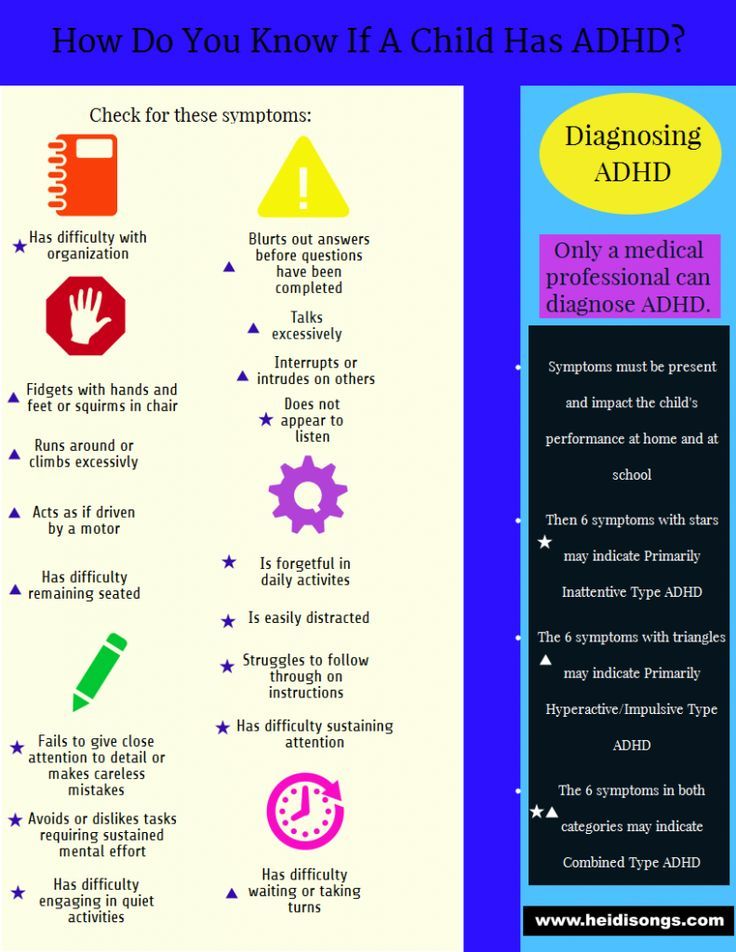 As a result of the visit, Masha accumulated so much irritation with her mother-in-law that she said goodbye to her through her teeth, then even burst into tears. nine0003
As a result of the visit, Masha accumulated so much irritation with her mother-in-law that she said goodbye to her through her teeth, then even burst into tears. nine0003
In the above example, the woman did not feel an ounce of gratitude, but she felt a lot of indignation at her mother-in-law's behavior. This happened because the woman came up with a script for her mother-in-law and was worried that she did not want to fit into it. In the woman's mind, the mother-in-law immediately owed Masha a lot: to break loose at her first call, postponing work; get down to business energetically immediately after arrival; cook what Masha considered right; walk on the machine schedule. As a result, in a situation where gratitude would have been natural, no gratitude happened, but accusations and tears happened. nine0003
In this example, the scheme of ingratitude is clearly visible:
1. A person believes that he is owed in advance. This “should” is in no way consistent with the opinion of the Other, in no way coordinated with his intentions. Everything should be, there is nothing to argue.
Everything should be, there is nothing to argue.
In general, the basis of any ingratitude is the feeling of what you should by birthright: love, respect, material benefits, opportunities, and so on. And giving it is just restoring the justice of life. nine0003
2. Any deviation from the "I owe" scenario is declared a mistake that the other must make up for.
3. All the good that is done is swallowed up by a mass of mistakes, annulled in this way. Of course, something has been done, but there are so many mistakes...
4. As a result, the balance is zero, there is nothing to be thankful for.
This scheme is also used by children. They are also not entirely happy with what you do for them. Do you clean, wash, iron? So he doesn’t care, this is not his script, he looks like an unironed one and bits under the pillow are not a problem for him. Do you give money? So they give more to others, not these pennies. Feed? Well, that goes without saying. And add on how many troubles from parents: brainwashing, all sorts of restrictions, often assault . .. As a result, a zero balance, there is nothing to be thankful for. nine0003
.. As a result, a zero balance, there is nothing to be thankful for. nine0003
But the child did not come up with this scheme, this is the scheme of adults, the child only picked it up. If your child is ungrateful, answer yourself honestly - are you grateful? Your parents, husband, wife, mother-in-law, friends? How often do these people hear your gratitude? Compared to how many complaints they hear from you...
Most people feel gratitude only on special occasions, and usually they feel indignation that they were not given enough. They were poorly brought up, poorly supported, sent to the wrong place to study, today they are underestimated and paid little, they are poorly cared for, their spouse offends, not the government and the climate. It is in this environment that a child is formed who does not know what gratitude is. nine0003
Do you often talk to your child about the value of getting a free education? Or did he hear from you more often about how terrible schools are today?
Do you appreciate the fact that the ambulance team comes to you promptly? Or was all the energy spent on criticizing modern medicine and the indifference of doctors?
Is there any gratitude to fate for the fact that you live in a world of great opportunities? Or do you regret that yours is not covered with pink rugs, and competitors and taxes interfere with you? nine0003
Your beliefs about whether there is something to be thankful for personally shape your children's beliefs.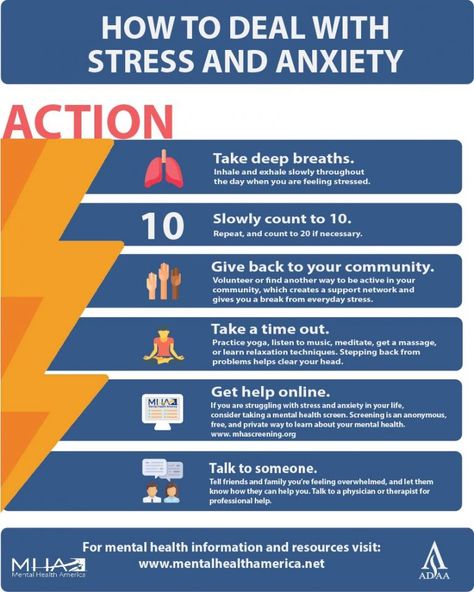
Children grow up grateful in families:
- where they are grateful to their parents and show it
Yes, if you yell at your elders, talk to your mother disdainfully and demandingly, then expect the same from children.
If there is no gratitude to your parents, but on the contrary, there is indignation at their past sins and today's stupidity, then your children will not be grateful to you either. You will also have shortcomings, and the model of criticism is right at hand. nine0003
- where mom and dad are grateful to each other for what they do
The principle here is simple: if the family considers it unnecessary to thank (but there is gratitude inside, of course, yes), everyone just does their job , then the child simply does not know that something will be required of him in the field of gratitude. If mom does not say “thank you” to dad for bags of food, and dad does not say “thank you” to mom for lunch and ironed shirts, then the child will not organically say “thank you” for anything.
This is a ridiculously simple topic, but people need to learn to speak polite words in the family, to express gratitude. For the fact that someone made concessions, for signs of attention, for delicacy, for support, for household chores. If it is, no special education is needed, the child will absorb this environment and will own at least a form of gratitude. nine0003
- where adults are convinced that no one owes them anything, and if they get something, then it is worthy of inner gratitude External gratitude, let's say, is still possible, but for this a person must be very afraid of you. And the inside is completely impossible.
It is also unproductive to squeeze out gratitude by inciting guilt in the child. Some parents use this tactic, sometimes unconsciously, but sometimes very consciously: they tell the child how hard it was for them, what they had to go through and invest in order for him to grow up so good. And the birth was terrible, my mother almost died, and cried all night long, my parents almost went crazy, and I was sick, and mischievous, and then the school went, so how many gifts were transferred to teachers, how many were given to tutors . ... And my father worked hard at five jobs, and my mother left the institute. All for him! An extreme case known to me: parents sewed on a special piece of fabric all checks for all goods bought by the child in order to show the child this material evidence in due time - everything that was spent from family money on him. To appreciate, it means ... This case is certainly unique, close to psychiatry, but such a strategy is supported by many parents - to show the child how hard it got. Unfortunately, this will not work out, the child will only fence himself off from you in response to your outpourings. Yes, the feeling of guilt is unknown for what you will provide him, but gratitude is not born like that. nine0003
... And my father worked hard at five jobs, and my mother left the institute. All for him! An extreme case known to me: parents sewed on a special piece of fabric all checks for all goods bought by the child in order to show the child this material evidence in due time - everything that was spent from family money on him. To appreciate, it means ... This case is certainly unique, close to psychiatry, but such a strategy is supported by many parents - to show the child how hard it got. Unfortunately, this will not work out, the child will only fence himself off from you in response to your outpourings. Yes, the feeling of guilt is unknown for what you will provide him, but gratitude is not born like that. nine0003
The child can appreciate the parents' sacrifices made for his good, but these sacrifices are immediately depreciated when they become the subject of self-presentation "We are for you...". Over time, the child may realize that the mother really worked hard to pay for his studies. Especially if mom had the strength to come and hug him after work. However, if you make serious sacrifices, you should not count on the gratitude of the child as payment for these sacrifices. You follow your own decisions and values, making a decision about the victim, there is no need to demand payment. The presence or absence of gratitude does not depend on your exactingness, but on what I wrote about above: on your ability to experience gratitude and the ability to express it. This is what works, and not forcing gratitude out of a child by force. nine0003
Especially if mom had the strength to come and hug him after work. However, if you make serious sacrifices, you should not count on the gratitude of the child as payment for these sacrifices. You follow your own decisions and values, making a decision about the victim, there is no need to demand payment. The presence or absence of gratitude does not depend on your exactingness, but on what I wrote about above: on your ability to experience gratitude and the ability to express it. This is what works, and not forcing gratitude out of a child by force. nine0003
“But what to do anyway?”
“In the end, I didn’t understand what to do anyway?!” - this is my favorite question that appears regularly in the comments to articles. If it is not written exactly how to act, then why read it, right))))?
Therefore, I summarize.
A child's gratitude grows very gradually, it is formed mainly on the basis of interaction in the family. If you find that your 16-year-old child is absolutely ungrateful, then you will not be able to pull up this trait in a fire order.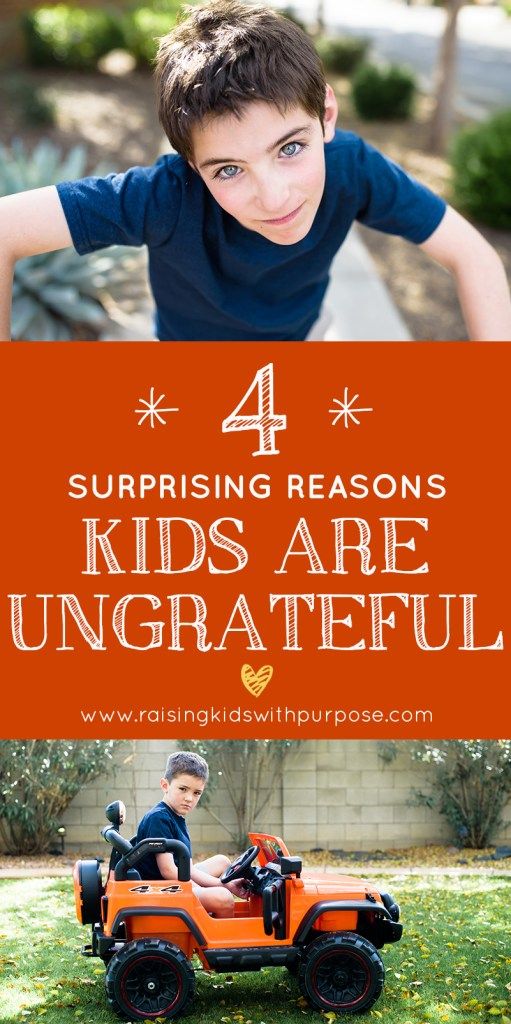 Here it is already necessary to accept it as it is and try to build relationships with him based on the actual state of affairs, forgetting about gratitude. It is quite possible that it will manifest itself later, if you do not often reproach it with ingratitude. nine0003
Here it is already necessary to accept it as it is and try to build relationships with him based on the actual state of affairs, forgetting about gratitude. It is quite possible that it will manifest itself later, if you do not often reproach it with ingratitude. nine0003
At a tender age (preschool and primary school) it's time to instill in your child the ability to be grateful. The development of this quality begins with the form, social rituals.
To develop the feeling and behavior of gratitude, it is necessary to explain to the child the idea that expressing gratitude opens the way for him to good relationships, and ingratitude makes people angry and spoils relationships. In the family as well.
Teach your child the rituals of gratitude. Social rituals have many nuances, sometimes you need to thank eloquently, sometimes briefly, and sometimes with one look and a smile or a nod. Tell and show how to thank for a gift (especially if you don’t like it), how to express a special attitude to your grandmother for her care, how to say “thank you” to dad for a gift and mom for pancakes, how to thank for an outstretched hand and an open door for you. nine0003
nine0003
Pay attention to yourself and try to cultivate the behavior of gratitude in yourself, especially in the family. Tell household members about your gratitude more than once a year during a birthday toast.
Express gratitude to the child for the good qualities that he demonstrates: sensitivity, willingness to help, compliance with the rules, respect for your boundaries.
Thank you more often and try to be sincere.
A special field is gratitude to my parents. If you understand why you are grateful to them, and express this gratitude, then it is almost certain that you will raise a grateful child without any “life hacks”. nine0003
Please note that inner gratitude is not enough here, it is not enough to be grateful in the depths of the soul (somewhere very deep), it is important to express gratitude on the surface. Indifference, interrupted relationships with parents, conflict and neglect of them are evidence of ingratitude and a direct path to ungrateful children.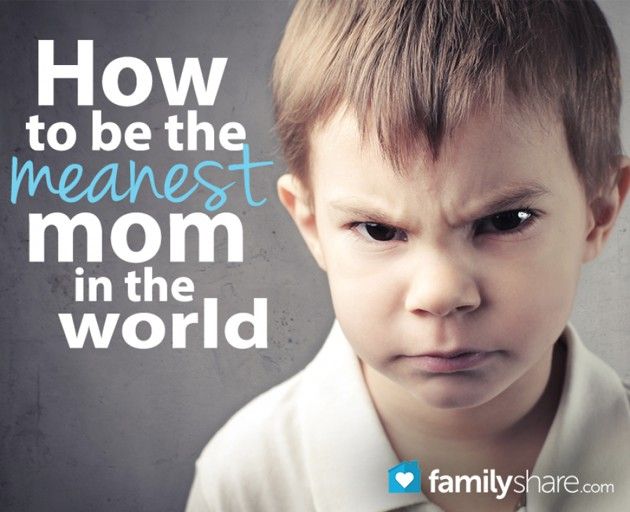
Try to process the thought that everything you have in life is worthy of gratitude, even the things you take for granted.
A simple exercise: before going to bed, find 10 things for which you can be grateful for the past day and the people you meet. (A dangerous sign, if it’s hard to come up with 10 points, then you have problems with gratitude. In general, if you sincerely wonder what you can thank people close to you for, then this is a problem area, and the problem is not in your loved ones, but in your beliefs). nine0003
It is impossible to simply attach gratitude to a child as an option; it can only be organically conveyed. It is impossible to develop gratitude in a child without fully possessing this property. Subsequently, someday he can and will learn to be grateful, but this will be without the participation of his parents. Therefore, the main emphasis in the development of a child's gratitude should be on himself, on his ability to be grateful.
More useful articles
on the website of Elizaveta Filonenko
Take or give: where do ungrateful children come from
How to properly build mutual exchange in parent-child relationships so that there is no resentment against each other.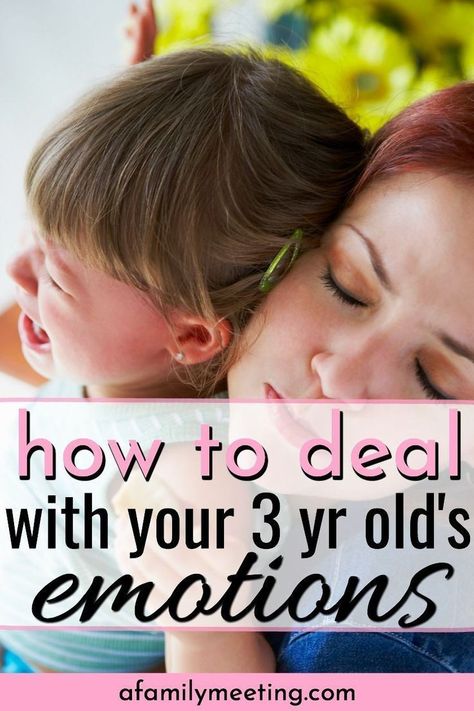 Psychologist's advice
Psychologist's advice
I was forced to write on this topic by a letter I received. “I don't understand why my daughter treats gifts so inadequately - she thinks that everyone owes her. She does not even try to persuade us when she needs something - she simply puts us before the fact, and that's it. If we refuse - scandals, offended. She dropped out of college, but never got a job. I am concerned about two things here: 1. She does not think that she also has any obligations to us (to study, work, do something around the house) and 2. It seems that she only needs gifts and money from us , and she knows how to get them through manipulation and scandals. What can we do to get out of this circle? nine0150
Finished reading here
I will try to consider the answer to this question somewhat broader than the banal "What to do?". After all, if you don’t understand what exactly is happening with the child, with you and with your relationship, you won’t solve the problem by following some correct “advice”.
After all, if you don’t understand what exactly is happening with the child, with you and with your relationship, you won’t solve the problem by following some correct “advice”.
Take and give
Variations on the theme “Give and Take” have been of interest to me as a psychologist for many years. And that's exactly what we're talking about here.
We can give and take in relationships in very different ways. Gifts and money are only one of the ways of mutual exchange. We give our time, attention, emotions, we express gratitude, love, respect, we are ready to provide assistance, share the necessary resources. In a good relationship, the exchange is usually balanced (in one "currency" or another). And in problematic relationships, there are almost always claims that one of the partners gives more than he receives back. nine0003
nine0003
And, of course, the ability to Take and the ability to Give are laid in childhood, in the parental family.
The so-called "spoiled children" are those who are accustomed to taking, demanding, and even simply taking away. They understand that almost any of their desires will be fulfilled. And you don't have to give anything in return.
Why are they given such power, why do parents agree to invest so much without demanding anything in return? This happens, for example, in those families where a child is the only light in the window, not only for the parents themselves, but also for numerous grandparents, aunts and uncles. Or in incomplete families (mother suffered so much after losing her husband that she is now trying her best not to lose another child). Or when the child is very talented (or sick with something). Or if his parents themselves were once unloved children. nine0003
Or if his parents themselves were once unloved children. nine0003
Unloved children and unloved parents
In any relationship, including family relationships, there is such a pattern. The partner who values these relations less has more power. That is, less attached and dependent.
And vice versa - the more you value this person, the more important, unique, attractive, etc. you consider it, the more you are willing to "pay" for maintaining this connection. To please, to please, to predict desires, not to hurt, to give in, to listen, to give the last, if only he was well ... Yes, there is a lot of “pure altruism” in this, like Cinderella. But not only. nine0003
There is a lot of hope in such behavior. You expect your investment to someday pay dividends. In the form of recognition, gratitude, warmth, reciprocal steps towards you. You want to be as important to this person as they are to you. Even if for this his love will have to be "earned".
In the form of recognition, gratitude, warmth, reciprocal steps towards you. You want to be as important to this person as they are to you. Even if for this his love will have to be "earned".
And this service can last for years. Because it’s more convenient for the second one - or because he doesn’t even know how to build relationships in a different way. And the one who received less reciprocal warmth is still trying to do something magical so that his efforts are finally noticed and appreciated! nine0003
In parent-child relationships, the exchange of Give and Take is arranged a little differently.
Parents give life to a child. This is a gift that children will never be able to repay.
There can be no balance here. In exchange for this gift, parents want loyalty from their children - good attitude, tolerance, respect, recognition and (up to a certain age!) obedience. And, by the way, the obedience of a small child is necessary for parents not in itself and not as a means of maintaining subordination. Agreeing with parental requirements and their implementation helps the child to preserve and maintain this gifted life, not to get into potentially dangerous situations. nine0003
And, by the way, the obedience of a small child is necessary for parents not in itself and not as a means of maintaining subordination. Agreeing with parental requirements and their implementation helps the child to preserve and maintain this gifted life, not to get into potentially dangerous situations. nine0003
Parents of naughty children feel as if the child refuses to cherish this gift - does not want to take something from their parents. That's when the thought appears that, probably, we give him too little, it is not valuable or not enough for him. And this is where this vicious circle can begin - the child demands more and more from his parents, continuing to demonstrate his independence and disloyalty. And parents are increasingly trying to please, deserve, bestow and catch even a shadow of gratitude in their beloved eyes. nine0003
Loyalty as a disadvantage
However, there is another synonym for loyalty – devotion. Only now, to be honest, the word "devotion" has two meanings. One of them is very honorable and noble. But on the other hand, to be betrayed means to betray oneself...
Only now, to be honest, the word "devotion" has two meanings. One of them is very honorable and noble. But on the other hand, to be betrayed means to betray oneself...
If parents want this kind of loyalty from their children in exchange for all their "sacrifices", it is very difficult for children to fulfill such a requirement. "Be like me! I can’t accept you differently,” these parents broadcast. nine0003
This is not necessarily said out loud. This is emphasized by a thousand little touches: disapproval of dissimilar thinking, gagging, variations on the theme “Don’t embarrass me in front of people”, unwillingness to take the side of a child in a difficult situation, etc.
Once I had to work with a mother and her 15-year-old daughter. At first, it seemed to me that my mother's claims were quite justified - let him clean his room, wash the dishes after himself, eat normal food (and not chips with sweets), and not skip classes at school. But her mother's face ... she spoke about her discontent not even with pain - but with disgust. It was clear that she simply could not love her imperfect daughter. She endlessly compared her with other people's (of course, much better!) Children, she talked about the long years of struggle for "at least some respect." nine0003
But her mother's face ... she spoke about her discontent not even with pain - but with disgust. It was clear that she simply could not love her imperfect daughter. She endlessly compared her with other people's (of course, much better!) Children, she talked about the long years of struggle for "at least some respect." nine0003
At some point, the girl stopped protesting and just burst into tears. We were in a noisy cafe, facing a crowded hall, and she sobbed inconsolably and could not stop. I sat next to her, and I realized that the only way to help her was to hug her - which I did. She leaned gratefully into my shoulder and continued to cry for a while until she calmed down. And all this time I was looking at my mother ... And, you know, it seems that she did not have the slightest impulse to sit in my place and turn her shoulder to her daughter and stroke her head just like me ... Maybe because she did not understand the reason her tears.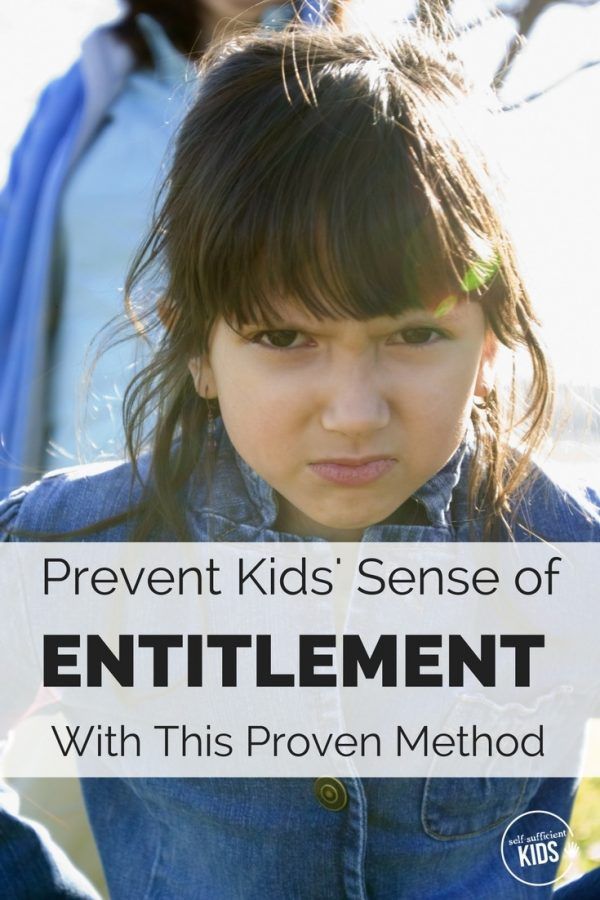 Or maybe because she no longer believed that her daughter could take such care from her mother. nine0003
Or maybe because she no longer believed that her daughter could take such care from her mother. nine0003
I encounter situations like this very often in my work. And how much pain is behind this for both children and parents! Unfortunately, relationships in many families develop in such a way that it is easier for parents to give something material (money, gifts, proper food, entertainment, take them to resorts). But when you need to give something emotional (care, comfort, general laughter, sympathy, support, understanding), the big question arises - are parents able to give it, and do children want to take it? nine0003
Disappointment in the child and deceived parental expectations can interrupt good contact with children from an early age.
And everyone is alienated - in confusion and with resentment. Parents don’t give because they “didn’t deserve it”, and children don’t take it, because later they will have to pay an exorbitant price for this by subordination, consent, and the shift of their interests. It’s easier to say “I don’t need anything from you!” or, conversely, agreeing to take only money and gifts.
Parents don’t give because they “didn’t deserve it”, and children don’t take it, because later they will have to pay an exorbitant price for this by subordination, consent, and the shift of their interests. It’s easier to say “I don’t need anything from you!” or, conversely, agreeing to take only money and gifts.
Both of these indicate a broken emotional contact, and the fact that behind this is a great mental pain - sometimes very skillfully disguised as discontent, annoyance, irritation, exactingness, sacrifice, aggression or independence. nine0003
Gifts are a consolation prize, compensation for the fact that you can't find a common language and exchange joy and love. As one adult client of mine said when her mother was about to come visit her for a few weeks: “I will have to talk to her - and this is what scares me the most.”
Reasonable exit
Of course, in each individual case, the strategy must be different. Sometimes already adult children really sit on the neck and literally terrorize their family, take advantage of parental helplessness or guilt. This cannot be allowed. And if the child is an adult, and it is unbearable or even unsafe for you to live with him, it is better to find a way to let him live on his own - on his own money and on full self-service. nine0003
Sometimes already adult children really sit on the neck and literally terrorize their family, take advantage of parental helplessness or guilt. This cannot be allowed. And if the child is an adult, and it is unbearable or even unsafe for you to live with him, it is better to find a way to let him live on his own - on his own money and on full self-service. nine0003
You should also be able to insist on a reasonable division of household chores if you live together and the child is over 10 years old. Personally, I think that it is not necessary to pay him extra for the washed dishes and a clean room, there is no need to do this feat. Just let your child get used to the fact that helping around the house is now a natural part of his life.
But the most important thing is to be open to emotional contact, do not hesitate to show your feelings (both good and bad)! You are also not iron, and there is no need to hide it. When you try to find the “right line of conduct” for yourself, this is also a kind of manipulation. So just show her the real you. If you cry, cry in front of the baby, not into the pillow. So tell your daughter or son directly that it seems to you that they only need money and gifts from you, and this hurts you a lot. If you are no longer ready to fulfill children's whims, stand your ground, even if it is unusual. Is it difficult to talk? Write a letter and leave the child alone with this information for a couple of days so that he has time to digest and think. nine0003
When you try to find the “right line of conduct” for yourself, this is also a kind of manipulation. So just show her the real you. If you cry, cry in front of the baby, not into the pillow. So tell your daughter or son directly that it seems to you that they only need money and gifts from you, and this hurts you a lot. If you are no longer ready to fulfill children's whims, stand your ground, even if it is unusual. Is it difficult to talk? Write a letter and leave the child alone with this information for a couple of days so that he has time to digest and think. nine0003
Demanding him to tell you about his life if you don't really do it yourself is useless. A personal example, as you know, is the best educator.
Be the first to open up and take the hit of indifference, alienation, sarcasm, or any other defensive reaction. If you yourself change, the child will not be able to ignore it.